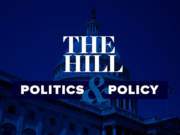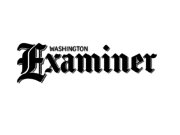According to a recent Post and Courier editorial, a campaign finance bill before the state Senate would bring greater transparency to so-called “dark money” political spending in South Carolina. Unfortunately, the editorial misidentifies the problem, prescribes the wrong solution, ignores relevant court rulings, and relies on extraneous data.
The bill would require any group that does not have “the primary purpose of supporting or opposing candidates or ballot measures” to file “independent expenditure committee” reports if the group spends so much as a penny over $500 on so-called “election communications.” In practice, this would regulate any speech that could even remotely be considered to “support” or “oppose” a state office candidate.
Senate Bill 255 appears to require an “independent expenditure committee” to file ongoing campaign finance reports as a political “committee” — commonly known as “PAC.” The bill’s extreme ambiguity on this point is, in and of itself, a fatal flaw. What is clear is that the bill intends to publicly out the donors to such groups — even if their donations were completely unrelated to any political purpose. Names, addresses and employer information would have to be reported not only for donors, but also for a group’s employees and vendors.
“Not surprisingly,” the Post and Courier editorial noted approvingly, the state officials pushing this bill are ones whose legislative initiatives advocacy groups have opposed. We fail to see the virtue here. Yes, it is “not surprising” that certain public officials would lash out at citizen groups that do not fall in line with those officials’ agendas. But far from promoting ethics, a bill to intimidate those groups into silence is a recipe for more corruption.
Citizens who want to know donors’ identities are free to discount messages from groups that do not provide that information. Forcing disclosure, however, deprives citizens of the chance to hear from groups that would be silenced by bills like SB 255.
For example, citizens may want to know how legislators plan to use taxpayer dollars to fund public spending programs, whether such plans are for better or for worse. If groups that would otherwise bring public attention to such plans are forced into silence by disclosure mandates, those issues may never be brought to light before a bill comes to pass.
Ironically, this is the real “dark money” problem that “dark money” critics fail to address.
The reasonable fear that many donors and advocacy groups hold is that disclosure is not an end unto itself.
Rather, it is a means for government officials to identify citizens they find troublesome, and to use the tremendous powers of government to retaliate. The U.S. Supreme Court and the 4th Circuit U.S. Court of Appeals, which has jurisdiction over South Carolina, have recognized this danger. Thus, these courts have ruled that a group may not be regulated as a PAC unless its “major” or “primary purpose” is to engage in unambiguously election-related activities.
Relying on those precedents, federal district court judges in South Carolina have ruled that the state’s pre-existing PAC law is unconstitutional on two separate occasions in 2012 and 2010. Like SB 255, the state’s invalidated PAC law requires groups that spend more than $500 on election-related activities to file donor and spending disclosure reports, even if their primary purpose is not election activity. Based on these rulings, SB 255 also likely is unconstitutional.
The Post and Courier editorial suggested that a recent decision by a federal district court in Montana upholding a similar Montana state law could save SB 255. But that ruling has no precedential value in South Carolina. And even if the Montana ruling applied, there are still major and material differences between the Montana law and SB 255.
Lastly, we note that the election spending figures the Post and Courier editorial cited to justify passing SB 255 were for federal elections — not state elections. Admittedly, it is difficult to estimate reliably spending on South Carolina state elections. But that is because much of the state’s disclosure laws are unconstitutional and unenforceable. Instead of shining a light on campaign spending in the state, SB 255 would add to this legal mess.
This post originally ran in The Post and Courier on February 15th 2017.














